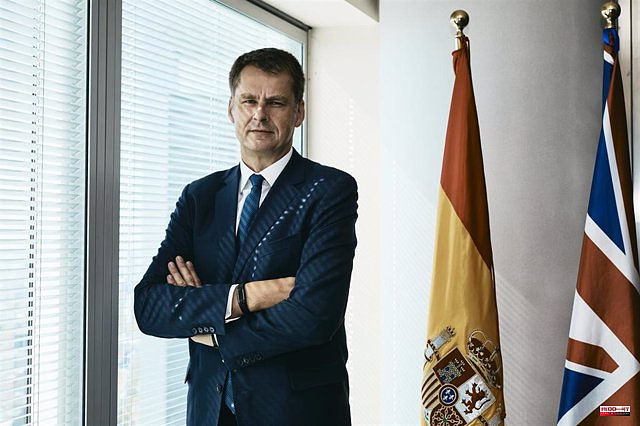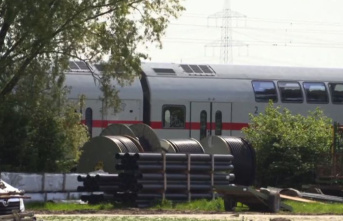They are "completely different" issues, according to the British ambassador to Spain
MADRID, 18 May. (EUROPA PRESS) -
The UK ambassador to Spain, Hugh Elliott, has defended the need to "correct" the Northern Ireland Protocol included in the Brexit agreements and has ruled out that the tensions between London and Brussels on this issue could weigh down the pending negotiations on Gibraltar, as they are "completely different" issues.
Spain and the United Kingdom signed a first agreement on the situation in Gibraltar on December 31, 2020, but a broader pact between the British authorities and the European Union is still pending, for which eight rounds of contacts have already been carried out.
"There is still work to be done, but we have made a lot of progress", explained Elliot, in an interview with Europa Press in which he stressed that there is a "very clear will" of the parties to "move fast", despite the fact that there is no a specific date to conclude the negotiations --several deadlines have already been missed--.
The ambassador has ruled out that this dialogue could be affected by the frictions arising from the Northern Ireland Protocol, which London has promised to amend "in the coming weeks" despite warnings from Brussels against a unilateral modification of the agreement.
Elliot has explained that it is not a question of "throwing away" the Protocol but of "correcting it" and has pointed out that the Government already has in its possession a report from the Prosecutor's Office that proves that it is a "legal" step, in accordance with the Law International, as defended on Tuesday by the British Foreign Minister, Liz Truss, before the House of Commons.
Like Truss, the British ambassador to Spain has argued that London's priority continues to be "that there is a negotiated solution" with the European Commission. "We are totally willing to continue dialoguing", he has riveted.
In fact, he stressed that Truss's warning about imminent legal reform "is not an ultimatum, it is not a threat." The two parties, he has added, remain "friends" and "allies".
Elliot has justified that the same Government that negotiated the Protocol to avoid a 'hard border' in Ulster now wants to review it, since he considers that this is what any "responsible" administration would do if it detects "problems on the ground" when applying the different measures.
In this sense, he has advocated "preserving" the progress made after the Good Friday Agreements of 1998 and has recognized the discomfort of unionist politicians. The Democratic Unionist Party (DUP) has blocked the formation of a government in Northern Ireland pending changes in the Protocol.
Elliot has pointed out that, "to a greater or lesser extent", all the major Northern Irish parties want some kind of modification, although he has recognized the special demand of the DUP, which has summoned London to act as soon as possible.
The Government of the United Kingdom proposes changes to, for example, guarantee that there are no obstacles to trade between Northern Ireland and the island of Great Britain, a collateral effect of Northern Ireland's permanence in the EU common market.
3












